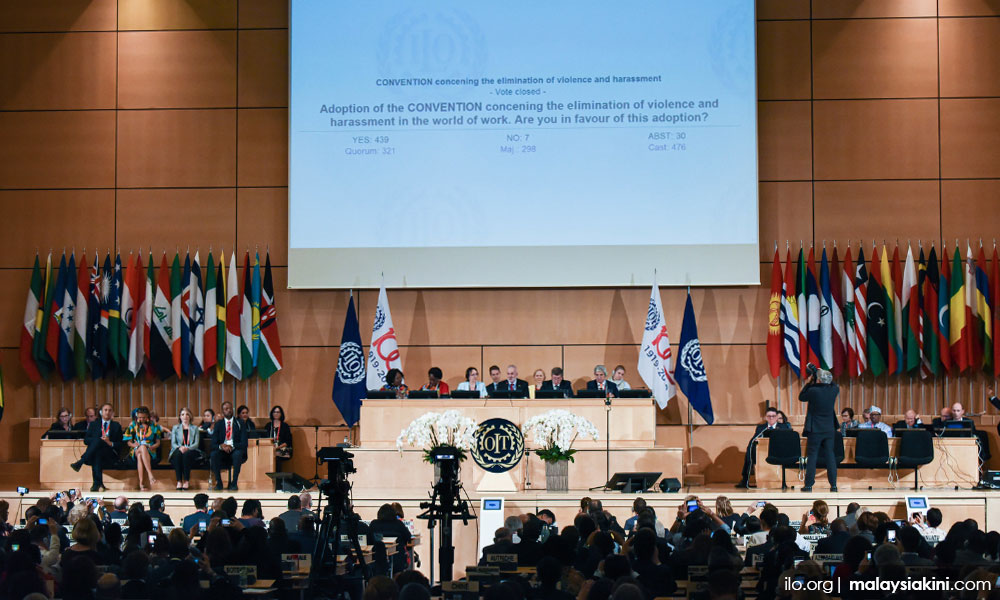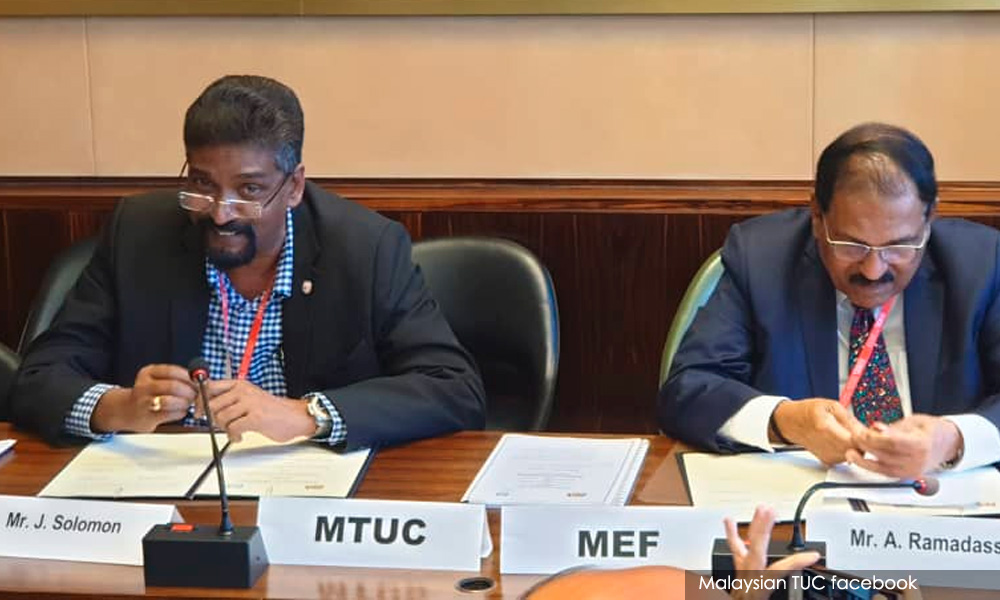ILO convention - ministry didn't want to clash with MTUC, MEF, says Kula
The government took a neutral stand on the ILO Convention on Sexual Harassment and Violence because it did not wish to be in conflict with its stakeholders.
Human Resources Minister M Kulasegaran also pointed to a similar stance by Singapore when explaining the heavily criticised decision by the Malaysian government to abstain from voting on it with the MTUC and the MEF voting to reject the clause.
Speaking at a National Labour Advisory Council press conference this afternoon, he said: "Each member state is allowed four votes. Two from the government, one from the workers and one from the employers."
Malaysia was represented at the ILO meet by the Ministry of Human Resources, MTUC and MEF, he said.
"In the adoption of the convention on violence and harassment in the world of work, the government of Malaysia voted to abstain due to the following reason that is we cannot be in conflict with our stakeholders, the MTUC and MEF, and therefore we took a neutral stand for now.
"In the spirit of tripartism, which is the core value of international labour standards, our ministry consulted with MTUC and MEF and was informed that both parties had a strong opposition towards the convention.
"Both voted 'no'. Taking into consideration these strong views by both workers and employers, it is of concern that the proposed convention includes a wide scope of application for workers, including those not in actual employment including job-seekers, temporary workers, etc."

Kulasegaran did acknowledge that the point of contention was about the inclusion of the LGBT group as part of those listed as vulnerable. However, he admitted that although a compromise had been reached, this did not result in a change of vote by representatives from the ministry, MTUC and MEF.
"The heavily debated issue was about the list of vulnerable groups which initially included LGBT but later, due to a compromise by EU countries and employers, this was excluded," he said.
"As such the ministry is of the view that the convention's recommendation can be supported by the government," he said.
Kulasegaran also said that his ministry had consulted with the other Asean member states prior to deciding on the voting.
"It should be highlighted that Singapore also abstained from voting on the convention," he said.
He pointed out that while abstaining on the convention itself, the Malaysian government had voted in support of the ILO recommendations which were non-binding.
He also said the government was committed to ensuring that labour rights were protected, including from violence and harassment at the workplace.
"This is reflected in the Employment Act 1955 via the amendments incorporated in 2011 that provided a specific provision for the definition of sexual harassment and a mechanism to handle sexual harassment cases.

The minister's statement comes in the wake of the vote on June 21 which saw ILO member governments, employers' federations and workers' representatives deliver a strong mandate to adopt the ILO Convention on Violence and Harassment.
The vote was overwhelming with 439 delegates voting for the convention's adoption and only seven voting against with 30 abstentions.
Both MTUC and MEF were among the seven who voted against the resolution. Of the seven votes against the resolution, MTUC's was the only one representing a trade union umbrella body.
The Malaysian government, represented by the ministry, abstained from voting.
RM12.50 / month
- Unlimited access to award-winning journalism
- Comment and share your opinions on all our articles
- Gift interesting stories to your friends
- Tax deductable
